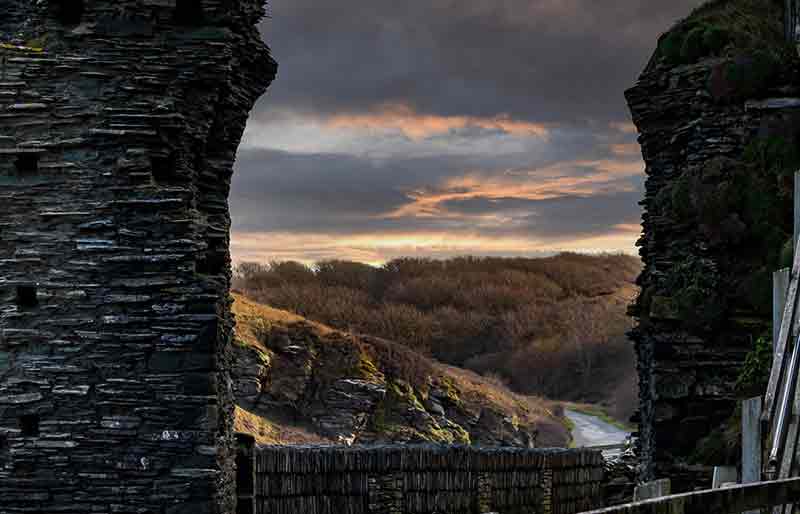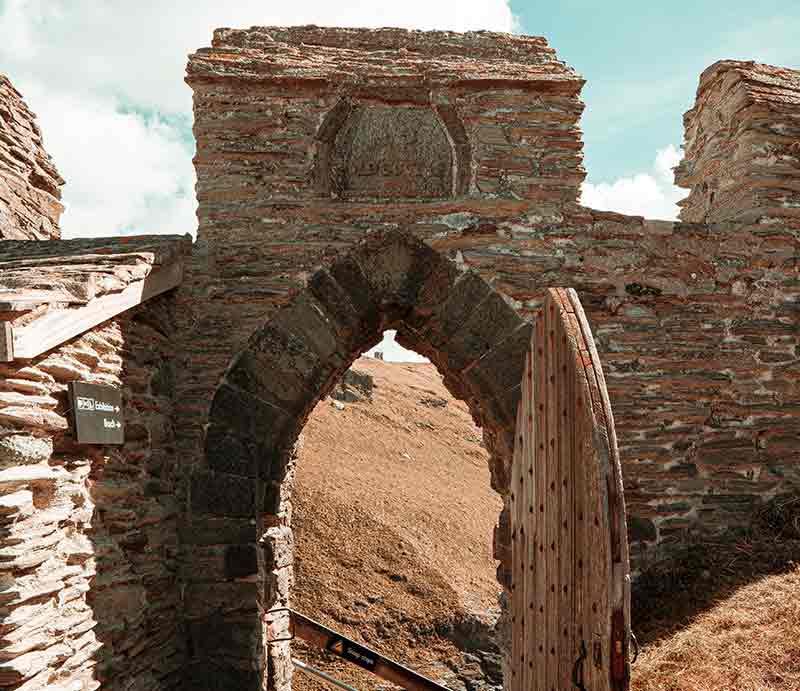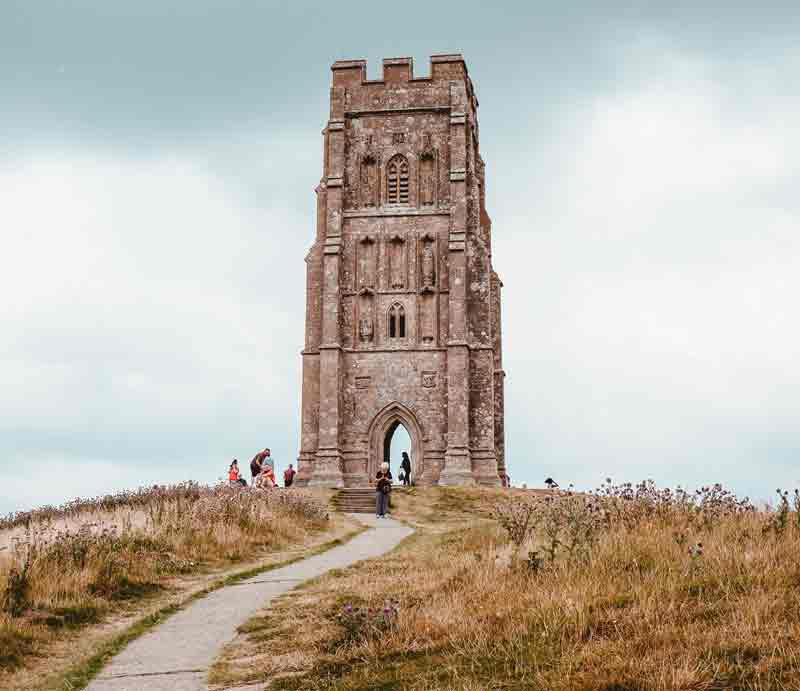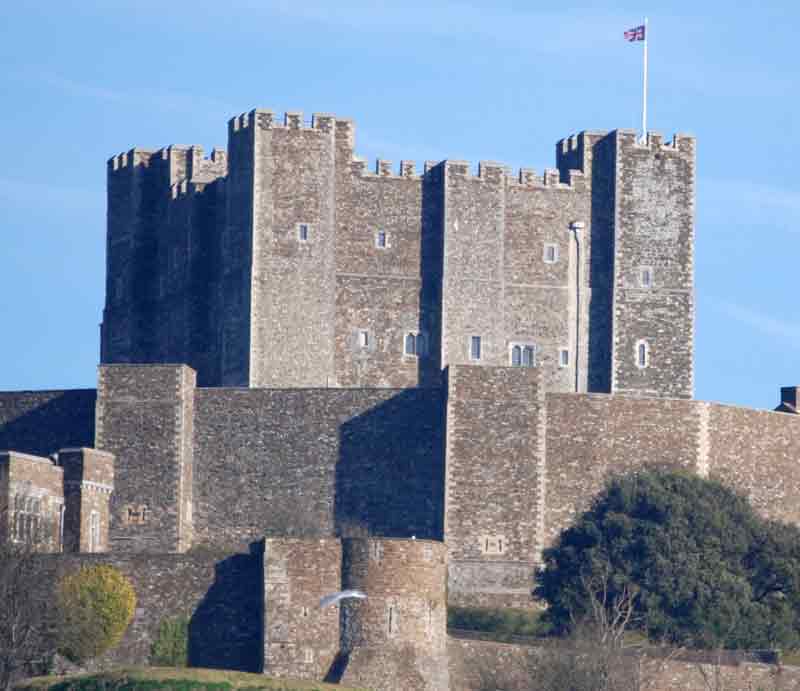Tintagel Castle in Cornwall is traditionally considered Arthur's birthplace, this dramatic clifftop ruin offers stunning views and fuels the imagination. Somerset’s Cadbury Castle is often identified as Camelot, Arthur's legendary court, this hill fort boasts Iron Age ramparts and offers a glimpse into potential historical inspiration.
England

King Arthur's legend is deeply intertwined with the history and landscape of England, with numerous locations connected to him and his knights. While the historical basis for Arthur remains debated, the mythical King has become a cornerstone of English folklore and national identity. Let's explore some of the key connections:
Some theories suggest Arthur was a Romano-British leader who fought against Saxon invaders in the 5th and 6th centuries AD. Locations like Hadrian's Wall and various Roman forts are sometimes linked to his campaigns. Others see parallels between Arthur and Celtic deities or heroes, suggesting his legend emerged from earlier mythologies. This connection is particularly strong in Wales and Cornwall, where Celtic influences are deeply rooted.
The Arthurian legend flourished in medieval romances like Geoffrey of Monmouth's "Historia Regum Britanniae" and Thomas Malory's "Le Morte d'Arthur." These works established key characters, locations, and plotlines, solidifying Arthur's place in English literature.


Glastonbury Tor (also in Somerset) is believed by some to be Arthur's final resting place, this iconic hilltop is steeped in mystical legends and attracts pilgrims and tourists alike. Arthur’s legendary Round Table is said to have been housed in Winchester (Hampshire), and the city features in Arthurian romances like "Le Morte d'Arthur."

Dover Castle in Kent is a formidable fortress linked to battles fought by Arthur in some narratives, adding to its historical and legendary significance. The Arthurian legend is full of variations and interpretations, with no single definitive version.
These locations offer a starting point to explore the rich tapestry of myths and stories surrounding King Arthur in England. Each place invites you to use your imagination and delve deeper into the fascinating world of Arthurian legend.
Summary
Possible Origins
Roman Britain: Theories propose Arthur was a Romano-British leader fighting Saxon invaders (5th-6th centuries AD). Places like Hadrian's Wall and Roman forts are linked to these campaigns.
Celtic Mythology: Parallels between Arthur and Celtic deities/heroes suggest connections to older mythologies, especially in Wales and Cornwall.
Literary Associations
Medieval Romances: Works like Geoffrey of Monmouth's "Historia Regum Britanniae" and Thomas Malory's "Le Morte d'Arthur" established key characters, locations, and plots, solidifying Arthur's place in English literature.
Major Locations
Tintagel Castle (Cornwall): Considered Arthur's birthplace, this dramatic ruin ignites imaginations.
Cadbury Castle (Somerset): Often identified as Camelot, this hill fort features Iron Age remains and potential historical inspiration.
Glastonbury Tor (Somerset): Believed by some to be Arthur's final resting place, this iconic hill is deeply entwined with Arthurian legend.
Winchester (Hampshire): The legendary Round Table is said to have been housed here, featuring in stories like "Le Morte d'Arthur."
Dover Castle (Kent): This formidable fortress connects to Arthurian battles in some narratives, adding to its historical and legendary significance.
Additional Connections
Other locations: Many other places in England have Arthurian connections, like Bodmin Moor (battles), Stonehenge (mythical associations), and various castles/ruins associated with specific characters.
Local Folklore: Each region may have its own unique take on the Arthurian myth, adding further richness and complexity to the legend.
Continuing Appeal: Arthur's story continues to inspire artists, writers, and filmmakers, solidifying his place in English cultural identity.
nl-tidy-pagestats (1)
merlins-cave (2)
tintagel-castle (2)
glastonbury-tor (2)
glastonbury (3)
!home (2)
scotland (3)
dover (3)
king-arthur (1)
idylls-of-the-king (1)
ireland (1)
amesbury (2)
durrington-walls (2)
cadbury-castle (2)
wansdyke (2)
marlborough (1)
stonehenge (1)
vespasians-camp (2)
glastonbury-abbey (2)
merlins-mound (1)
tintagel (1)
winchester (1)
winchester-castle-great-hall (2)
avalon (1)
stanzaic-morte-arthur (1)
Useful Links
The Myths, Legends & Folklore of England (English Heritage) (Opens in new window) This English Heritage page explores the legendary foundations of England's history, featuring an interactive map, video series, and expert articles that uncover the folklore behind iconic sites like Tintagel and Stonehenge.

